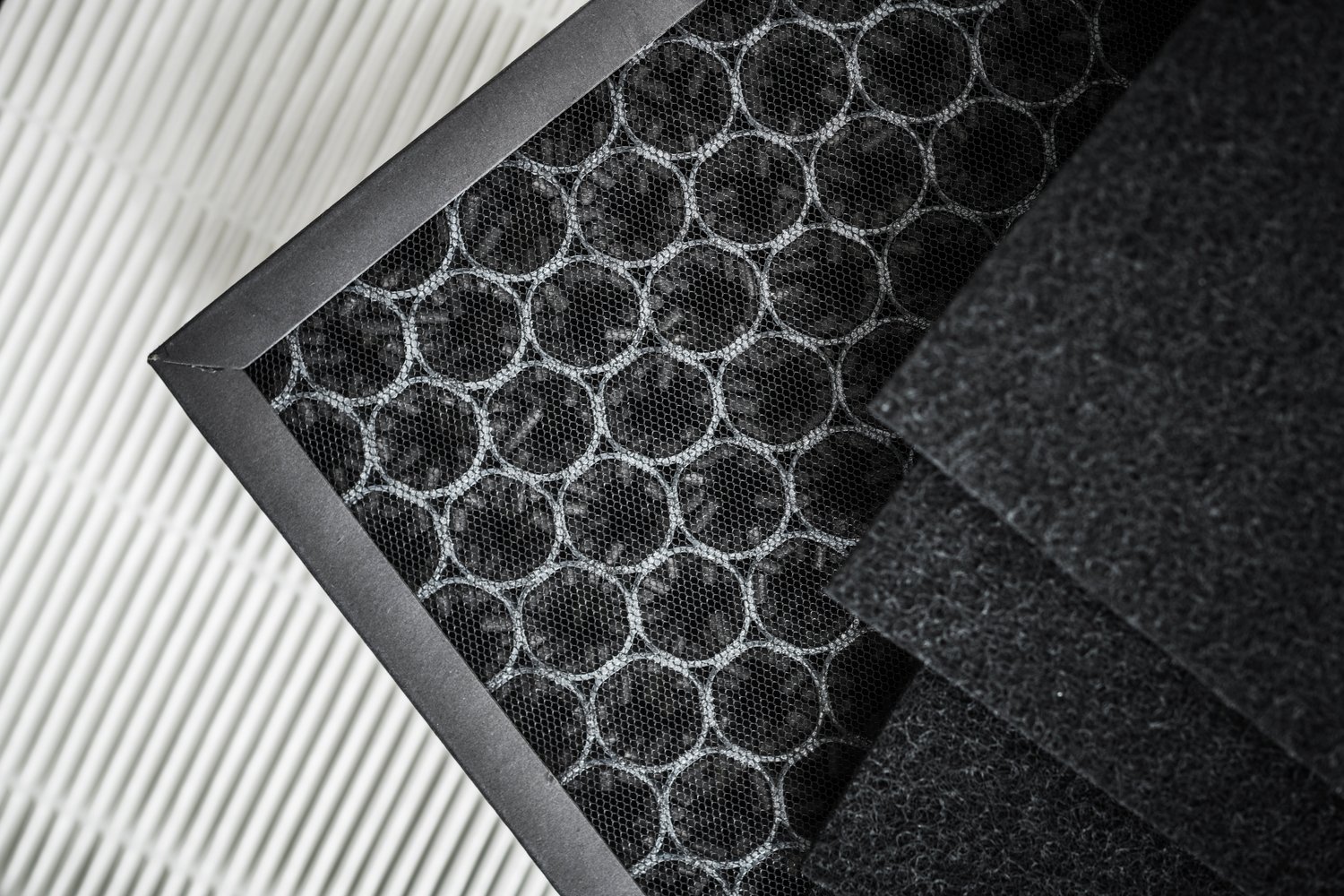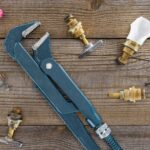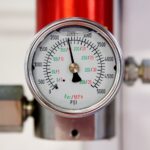Breathing fresher air isn’t just about opening a window; it’s about ensuring that your HVAC system is equipped with the right filter to keep allergens at bay. With the right selection, maintaining a healthy environment becomes not only achievable but also straightforward.
- Discover how HVAC filters play a pivotal role in filtering out allergens, significantly enhancing air quality in your living or business spaces.
- Learn how to choose the right filter for allergy prevention by understanding key factors like MERV ratings and filter materials.
- Explore different filter materials and their effectiveness in trapping allergens to make an informed choice.
- Get maintenance insights to keep your HVAC system running optimally, ensuring long-term air quality improvements.
This guide is your gateway to a clearer, healthier atmosphere by understanding and choosing the right HVAC filter. Dive in and arm yourself with the knowledge to promote better indoor air quality.
Understanding the Basics: HVAC Filters and Allergy Prevention
Indoor air quality is a significant concern for homeowners and businesses alike, especially when it comes to allergy prevention. HVAC filters play a crucial role in maintaining clean air by removing allergens that can trigger allergic reactions. But how exactly do these filters function?
HVAC filters are an integral part of your heating, ventilation, and air conditioning system. They work by trapping airborne particles such as dust, pollen, pet dander, and mold spores as air circulates through the system. By efficiently removing such particulates, HVAC filters help to enhance the overall air quality, providing a healthier living and working environment.
Understanding how these filters contribute to allergy prevention is essential for anyone looking to maintain a safe and comfortable indoor space. A well-chosen filter not only removes large particles but also targets smaller, allergy-inducing particles, promoting better respiratory health.
Key Factors in Selecting the Right HVAC Filter for Allergies
Selecting the right HVAC filter involves considering several critical factors that can make a substantial difference in its effectiveness against allergens. The most recognizable standard for filters is the Minimum Efficiency Reporting Value (MERV) rating. Filters with higher MERV ratings are more efficient at capturing smaller particles, directly impacting their performance in allergy prevention.
However, MERV ratings are just one piece of the puzzle. It’s equally important to consider the material of the filter. For example, fiberglass filters are economical but less effective against smaller allergens, whereas pleated filters offer higher efficiency due to their larger surface area.
For individuals with severe allergies, HEPA filters are often recommended due to their ability to trap up to 99.97% of particles as small as 0.3 microns. Additionally, certain HVAC filters are designed specifically for allergens, utilizing electrostatic technology to attract and hold onto allergens effectively.
By understanding these key factors, you can make a well-informed choice in selecting the best filter to improve your indoor air quality and reduce allergy symptoms.
Section 1.1: How MERV Ratings Impact HVAC Filter Effectiveness
The MERV rating system, or Minimum Efficiency Reporting Value, is a critical factor when assessing the effectiveness of HVAC air filters. Understanding MERV ratings can significantly impact how well your HVAC system filters out allergens, providing cleaner indoor air quality.
MERV ratings range from 1 to 20, indicating the filter’s ability to capture particles of varying sizes. A higher MERV rating means the filter is more efficient at trapping smaller particles, which is essential for allergy prevention. Filters with a rating between 8 and 13 are generally recommended for residential use, as they effectively capture common allergens like pollen, pet dander, and mold spores without overly restricting airflow.
For severe allergy sufferers, opting for a filter with a MERV rating between 14 and 16 may be beneficial, as it can trap even finer particles. However, it’s important to ensure your HVAC system can handle these higher-rated filters, as they could impact airflow and system performance if not compatible.
In conclusion, choosing a filter with the right MERV rating is crucial for improving air quality and mitigating allergy symptoms. Consider both your specific allergy needs and your HVAC system’s capabilities when making your selection.
Comparing Filter Materials: Choosing the Best for Allergy Reduction
When selecting the right HVAC filter for allergy reduction, one of the most important considerations is the filter material. Different materials offer varying levels of efficiency in trapping airborne allergens.
Fiberglass filters are the most basic type, often found in budget-friendly options. While they can capture large particles like dust and lint, they may not be the best for filtering out finer allergenic particles.
Pleated filters offer a step up in filtration capability. Made from polyester or cotton, their increased surface area helps capture smaller allergens such as pet dander and mold spores more effectively than fiberglass options.
HEPA filters are considered the gold standard for allergy prevention. These filters can capture up to 99.97% of particles as small as 0.3 microns, including bacteria and viruses. While highly efficient, HEPA filters are typically used in specific HVAC systems designed to handle their airflow restrictions.
Ultimately, the choice of filter material should align with your specific needs and your HVAC system’s compatibility. By selecting the appropriate filter, you can significantly reduce allergens and improve the overall air quality in your space.
Maintaining Your HVAC System for Optimal Allergy Prevention
Ensuring that your HVAC system operates efficiently is crucial for maintaining excellent indoor air quality, especially when it comes to preventing allergies. Regular maintenance not only extends the life of your system but also enhances its ability to filter out allergens effectively.
Regular Inspections: It’s important to conduct routine checks of your HVAC system. These inspections can identify any potential issues before they become major problems. Look for any visible dirt or obstructions that might be clogging the filter. A clean filter is vital for capturing allergens such as pollen, dust mites, and pet dander. Consider scheduling professional inspections at least twice a year to ensure a thorough examination of your system components.
Timely Filter Replacements: Replacing HVAC filters on time is one of the simplest yet most effective strategies to maintain good air quality. Depending on the type of filter, replacements should occur every one to three months. High-efficiency filters may require less frequent changes. Always have spare filters on hand, so you’re never in a pinch. Replacing filters regularly ensures that your system runs smoothly and that it effectively prevents allergens from circulating in your home or business.
System Cleanliness: Keeping your entire HVAC system clean is essential. Dust and debris can accumulate not only in the filters but also in ducts, vents, and other components. Regular cleaning helps maintain airflow and reduces strain on the system, further ensuring effective allergen filtration. Consider hiring professionals for a thorough cleaning if there’s significant buildup.
By implementing these maintenance tips, you can significantly improve your HVAC system’s efficiency. Regular maintenance is a proactive approach to allergy prevention, contributing to a healthier indoor environment. If you’ve found additional strategies that work well for you, share them in the comments below to help others create a cleaner, allergen-free space.
Common Questions About HVAC Filters for Allergy Prevention
What is a MERV rating?
MERV (Minimum Efficiency Reporting Value) measures a filter’s effectiveness in trapping particles of different sizes. Higher MERV ratings indicate better filtration.
How often should I change my HVAC filter?
It’s best to replace filters every 1-3 months, depending on usage and filter type, to maintain optimal air quality.
Can HEPA filters help with allergies?
Yes, HEPA filters are highly efficient at trapping small particles and allergens, making them ideal for allergy sufferers.
Are pleated filters better than fiberglass?
Pleated filters offer better filtration for allergens compared to basic fiberglass filters due to their increased surface area.
Do higher MERV ratings restrict airflow?
Yes, filters with higher MERV ratings can sometimes restrict airflow; ensure your HVAC system can handle it before upgrading.





